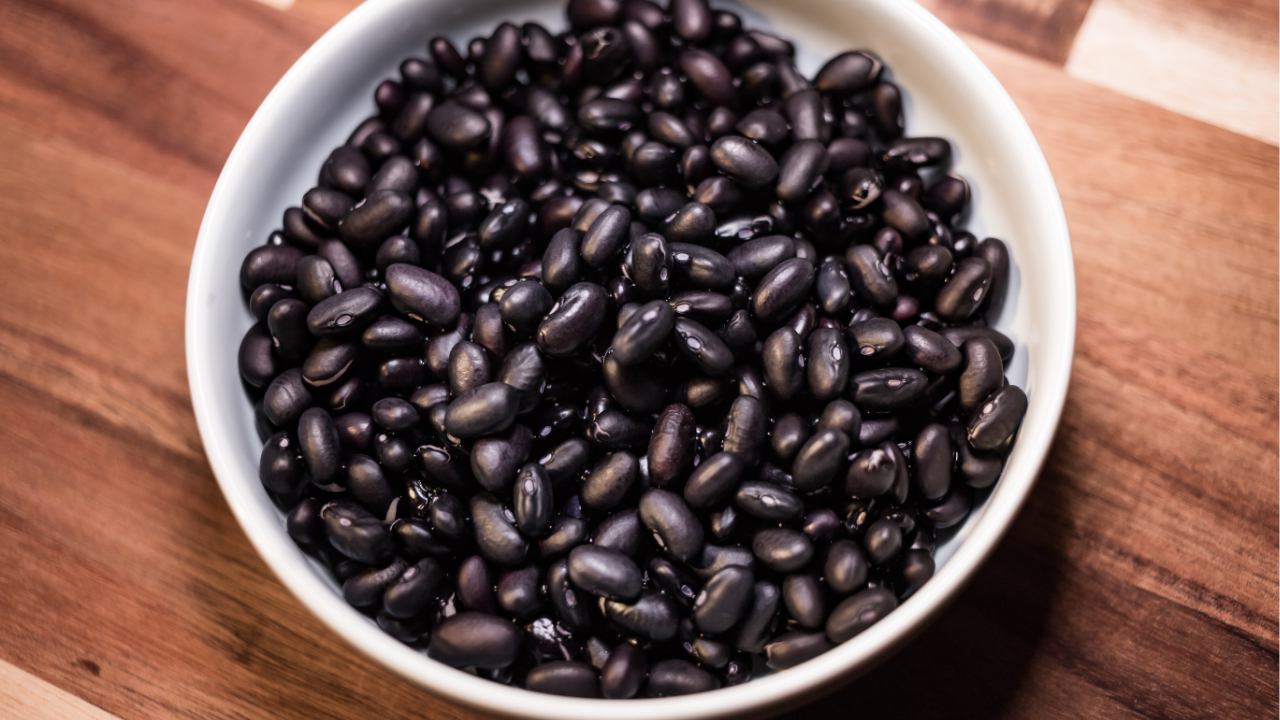Black beans, a staple in many cuisines worldwide, offer a plethora of health benefits. From their high nutritional value to their versatility in various dishes, black beans stand out as a nutritious addition to any diet. Let’s delve into why black beans are considered good for you.
Are Black Beans Good For You?
1. Rich Source of Protein
Black beans are an excellent source of plant-based protein, making them a staple in vegetarian and vegan diets. A single cup of cooked black beans contains about 15 grams of protein, which is crucial for muscle repair, immune function, and enzyme production.
This high protein content also helps in maintaining satiety, reducing the likelihood of overeating. For individuals looking to reduce their meat consumption, black beans serve as a substantial protein alternative that supports overall health.
2. High in Fiber
One of the standout features of black beans is their high fiber content. With around 15 grams of fiber per cup, black beans contribute significantly to the recommended daily intake. This fiber aids in digestive health, preventing constipation and promoting regular bowel movements.
Moreover, dietary fiber plays a vital role in maintaining a healthy weight. It helps control blood sugar levels, reducing the risk of diabetes, and keeps you feeling full longer, which can prevent overeating.
3. Packed with Antioxidants
Black beans are rich in antioxidants, particularly flavonoids, which help combat oxidative stress and reduce inflammation in the body. These antioxidants play a crucial role in protecting cells from damage and can lower the risk of chronic diseases such as heart disease and cancer.
The presence of anthocyanins, the compounds responsible for the beans’ dark color, provides additional anti-inflammatory and anticancer properties. Regular consumption of black beans can, therefore, contribute to long-term health and disease prevention.
4. Supports Heart Health
The nutrients found in black beans, such as potassium, magnesium, and soluble fiber, are known to support heart health. Potassium helps regulate blood pressure, while magnesium plays a role in maintaining a steady heartbeat.
The soluble fiber in black beans can lower levels of LDL (bad) cholesterol by binding to cholesterol in the digestive system and removing it from the body. This helps reduce the risk of heart disease and stroke.
5. Helps in Weight Management
Incorporating black beans into your diet can aid in weight management due to their high fiber and protein content. These nutrients promote a feeling of fullness and can help control appetite, making it easier to maintain a healthy weight.
Additionally, black beans have a low glycemic index, meaning they release energy slowly and keep blood sugar levels stable. This can prevent energy crashes and reduce cravings for unhealthy snacks.
6. Promotes Bone Health
Black beans are a good source of several minerals essential for bone health, including calcium, phosphorus, and magnesium. These minerals work together to maintain bone density and strength.
Regular consumption of black beans can contribute to the prevention of osteoporosis and other bone-related issues, particularly in older adults. The iron and zinc in black beans also play a role in collagen production and bone mineralization.
7. Regulates Blood Sugar Levels
For individuals with diabetes or those at risk, black beans can be a beneficial addition to the diet. The fiber and protein content helps slow the absorption of sugar into the bloodstream, preventing spikes in blood sugar levels.
This stabilization of blood sugar is essential for managing diabetes and can also help prevent the development of insulin resistance, a precursor to type 2 diabetes. Including black beans in meals can support better blood sugar control.
8. Boosts Energy Levels
Black beans are a rich source of iron, which is vital for maintaining healthy energy levels. Iron is a key component of hemoglobin, a protein in red blood cells that carries oxygen from the lungs to the rest of the body.
A diet that includes adequate iron helps prevent fatigue and improves overall energy levels. Black beans also provide a slow-release source of energy, keeping you feeling energized throughout the day without sudden spikes and drops.
9. Enhances Cognitive Function
The nutrients found in black beans, such as folate, magnesium, and antioxidants, contribute to improved cognitive function. Folate is crucial for brain health, supporting memory and mental clarity.
Antioxidants protect brain cells from damage caused by free radicals, which can contribute to cognitive decline and neurodegenerative diseases. Regular consumption of black beans can help maintain brain health and support cognitive functions.
10. Supports a Healthy Gut Microbiome
The high fiber content in black beans not only aids digestion but also supports a healthy gut microbiome. Fiber acts as a prebiotic, feeding the beneficial bacteria in the gut and promoting a balanced microbiome.
A healthy gut microbiome is essential for overall health, influencing everything from immune function to mood. By including black beans in your diet, you can support gut health and enhance your overall well-being.
In conclusion, black beans are a nutrient-dense food that offers a wide range of health benefits. From promoting heart and bone health to aiding in weight management and supporting cognitive function, these legumes are a valuable addition to any diet. Whether you’re looking to improve specific health conditions or maintain general wellness, black beans are a versatile and beneficial choice.

